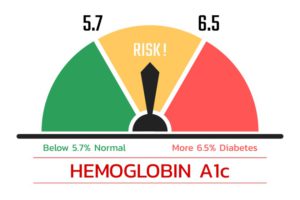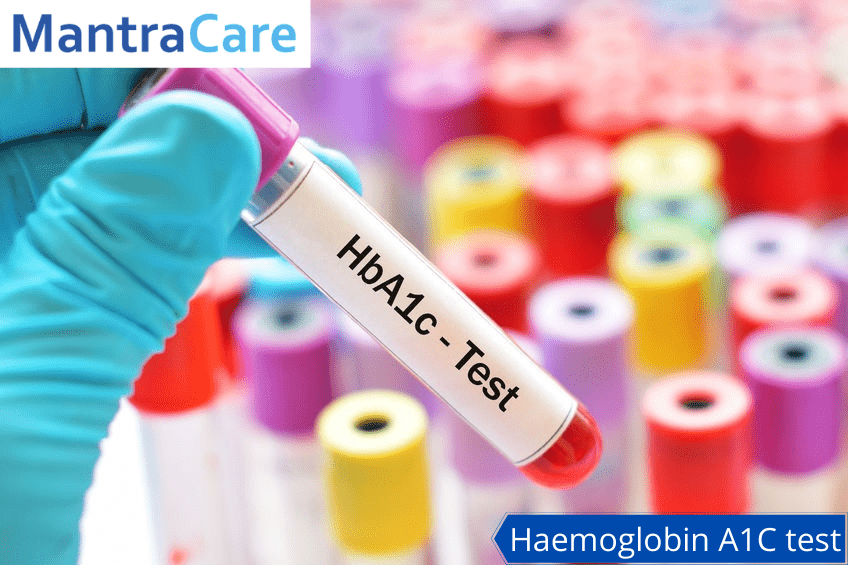Contents
What Is Diabetes?
Diabetes is a condition in which the blood glucose level in our body is present in excess condition. The source of glucose being produced in our body comes from the food we eat. The food is then digested by various digestive enzymes and is made into a simpler form so that it can be absorbed by the cells.
Insulin is one such hormone that is made by the pancreas and helps in the transportation of glucose formed from the food to reach the cells and energy can be further generated by the cell. But in some cases, the production of insulin is either very less or gets stopped completely leading to the accumulation of glucose in the blood. The glucose in absence of insulin is not being able to reach cells for its proper utilization and remains in the blood unutilized. This leads to various health problems including diabetes.
Different Types of Diabetes
There are different types of diabetes that can affect a person. Type 1 diabetes occurs when your immune system does not function properly and attacks the cells which produce insulin. People with type 1 diabetes need to take doses of insulin through injection to maintain their blood sugar level. Type 2 diabetes occurs when the production of insulin gets stopped or less amount of insulin is produced by the body. It is the most common type of diabetes. Gestational diabetes occurs in women who are pregnant and it probably goes away when the child is born. But these women are at higher risk of developing type 2 diabetes in the later stages of their life.
Symptoms of Diabetes
The symptoms that can be absorbed if you have or are at risk of having diabetes are urinating often, feeling very thirsty, feeling more hungry, extreme fatigue, blurry vision, bruises heal slowly, weight loss, pain, and numbness in hands and feet. The diagnosis of diabetes includes various tests like haemoglobin A1C, random blood glucose level test, fasting blood glucose level test, and oral glucose tolerance test.
What Is Haemoglobin A1C Test?
Haemoglobin is present in red blood cells. It is a pigment of red blood cells which bind with oxygen and helps in its transportation. Haemoglobin also has some amount of sugar molecules attached to it. This type of haemoglobin is known as haemoglobin A1C. The presence of this type of haemoglobin depends on the production of the level of sugar present in the blood. If there is a high amount of sugar in the blood then haemoglobin A1C will also be high and vice versa.
The red blood cells tend to live at least three months from the time they are produced. If sugar is present in the blood then it gets attached to the red blood cells and sticks to it for the rest of its life. So, when a blood sugar test is done a doctor may get to know that for a period of three months how much amount of sugar was present in the blood. The haemoglobin A1C levels of the test give an average blood sugar concentration in a person with diabetes for approximately the preceding three months.
Levels of Haemoglobin A1C

The levels of HbA1C can be altered by oral glucose intake, fasting, use of insulin, or by a combination of these and other factors. Haemoglobin A1C test results can indicate the condition of the people. The normal amount of HbA1C is below 6.0% or below 42mmol/mol. The person who is prediabetic stage would yield between 6.0% to 6.4% or between 42 to 47 mmol/mol. If a person is diabetic then they would have their test results above 6.5% or above 48mmol/mol.
Result of Haemoglobin A1C Test
The test provides the result about how much blood sugar level is present in the body and does not provide the average of the particular time period. The blood sample is usually taken from the arm or some amount of blood can be taken from the finger too. The blood glucose level is the amount of glucose present in your blood during the test. To measure the blood glucose level fasting plasma glucose is done which can be taken by extracting blood from the finger or arm. The fasting glucose test provides the result of the present time when the testing is done but the HbA1C test provides the results of a time period of three months.
The haemoglobin A1C test should be done at least once a year for people who have diabetes mellitus. If there is a change in your medication or health condition then getting this test done on a more frequent basis is recommended. The lower levels of HbA1C do not ensure that you won’t get any further complications related to the disease. It is important to maintain a proper lifestyle to keep the blood sugar level under control.
When you are getting haemoglobin A1C, make sure you haven’t fasted for the test as the test is done after you have had something to eat. The test would measure the amount of blood sugar level in your blood by testing the blood extracted from your arm or your finger. The test is done after every 2-6 months or as recommended by the doctor. The test measures the component present in the red blood cells and gives an indication of the level of your sugar in the blood for the past few months. The test can also be used to measure the increased risk of diabetes and cardiovascular disease.
Complications Caused By Diabetes
A person who has diabetes should always manage their blood sugar levels as it would avoid any further complications which can develop with diabetes. If the test results yield an increased amount of A1C then it could lead to type 2 diabetes and could also cause complications in those who have a diagnosis.
Other complications may arise like small blood vessels in the eyes and kidneys and vision loss which may be accompanied by cardiovascular diseases. These complications arise only when the blood sugar level in the body reaches a high limit.
There are long-term complications that occur due to uncontrolled diabetes. Presence of excess sugar in the blood damages the blood vessels and the nerves that nourish the various organs. It can cause tingling effects along with pain and burning sensation. If left untreated it could lead to nerve damage and a person may lose all the sense of feeling in the limbs and affected body parts. Diabetes has the potential to damage your retinal nerves which can lead to kidney failure or end-stage of kidney disease. It also has the potential to affect your eyes and cause diabetic retinopathy in which permanent vision loss can occur if diabetes is not controlled on time.
Diabetes also causes hearing impairment and skin conditions. People who have compromised immune systems are at risk of developing such skin problems as the immune system is not able to fight off the microbes present on the surface of the skin. Type 2 diabetes is known to increase the risk of getting dementia.
There are various risk factors associated with the disease which include genetic inheritance of the disease in a family. Type 1 diabetes is known to be inherited by children if the parent is suffering from the disease. The weak immune system is also a risk factor that in further stages can cause diabetes. An inactive lifestyle and being overweight can lead to type 2 diabetes as they are the risk factors associated with the disease. Age is also a factor that is associated with the occurrence of the disease. Having high blood pressure and PCOS puts you at greater risk of developing type 2 diabetes.
Complications caused by the disease can be controlled by controlling the blood sugar level present in the body. Eating healthy foods, taking proper medication on time, and getting involved in physical activity can help in decreasing the risk associated with the disease. It is important for the person suffering from diabetes to live an active lifestyle rather than a sedentary lifestyle.
Other Blood Test Method For Diabetes
There are other blood sugar tests that can be done if you are not able to get a haemoglobin A1C test done.
Random Blood Glucose Level Test
In this method, a sample of blood is taken at any point in time in the day and is assessed. If the results have 11.1mmol/l or more then it indicates the possibility of having diabetes. This can be confirmed by the fasting blood sugar level test.
Fasting Blood Sugar Level Test
In this test, you need to make sure you haven’t eaten anything before taking this test. The test is usually performed in the morning and blood samples are taken from the patient. If the test results yield the glucose level to be at 7mmol/l or more then it indicates that you have a high blood sugar level.
Oral Glucose Tolerance Test
This test is used to diagnose diabetes. It is considered as the pre-diabetes test and done when you do not have diabetes but have an increased blood sugar level. For the test, overnight fasting is required and during the test time you are given glucose water to drink and after two hours blood sample is collected. In normal conditions, the body should be able to tolerate the intake of glucose but if the test results show the concentration of glucose above 11.1mmol/l then it indicates you have diabetes.
Home Monitoring Test
It is the quickest method to analyze the blood sugar level and can be done regularly if you have a high blood sugar level. In this blood from a small finger, the prick is taken and it is then placed on the test strip. The strip changes the colour and the resulting colour can be assessed by the chart given along with the test kit to know the level of blood sugar present. it is also helpful for the people who receive insulin treatment.
Urine Test
The body does not excrete glucose through urine. It absorbs the glucose molecules present in the urine but if the glucose present in the body is very high then the kidney is unable to further absorb glucose and releases it through urine. In urine blood sugar testing a dipstick is used which contains certain chemicals. If the colour of the strip changes then it indicates the presence of sugar in the urine which further states that there are high chances of having increased blood sugar levels. Some people have defective kidneys and some amount of glucose is released in the urine. Such people should get blood tests done to make sure that they have diabetes or not.
The haemoglobin A1C test is used for people who have type 1 and type 2 diabetes and is not used for women who have gestational diabetes. The test results may not be accurate if you have any blood disorder. It is recommended to get professional help before getting any blood sugar level test done. You do not require to fast overnight for this test but for the other test overnight fasting is important. So, it is important to ask your healthcare advisor whether or not you have to do overnight fasting. Diabetes is a disease that can be controlled easily if proper food and an active lifestyle are led by the person.
A Word From MantraCare
Do you want to get rid of diabetes? Join our online diabetes consultation program and reverse your Diabetes naturally through lifestyle changes such as a Personalized Diet plan, Exercise, dieticians, and health coaches.


